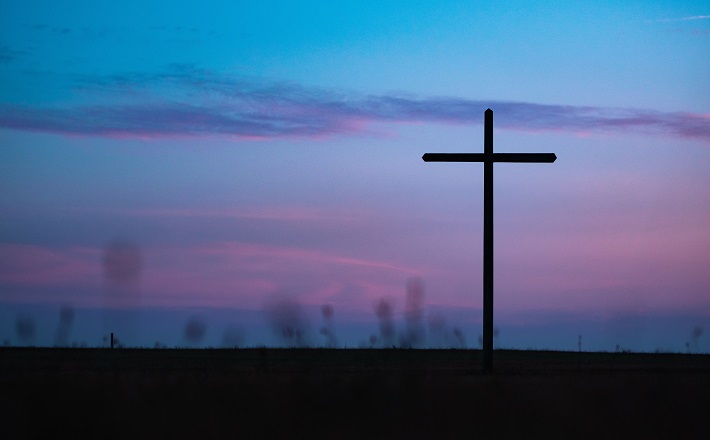Commentary on Genesis 1:1—2:4a
Translation renders the opening verses of Genesis 1 deceptively clear and straightforward.1
This passage, however, contains a number of words and phrases that are used rarely, if at all, in other parts of the Hebrew Bible, making them more difficult to define with the kind of precision that we might like. Translations smooth out the rough edges of this ancient text, implying a level of understanding that we can’t quite claim.
Tohu va-bohu
Genesis 1:2, for example, says that “the earth was a formless void and darkness covered the face of the deep, while a wind from God swept over the face of the waters.” Both “formless void” (tohu va-bohu) and “swept” (merahefet) have posed difficulties for translators. The word merahefet appears only three times in the Hebrew Bible and might just as easily be translated as hover, flutter, or move.
Even more problematic are the two words that make up the phrase tohu va-bohu (“formless void”),which appear together as unit in only this verse and in Jeremiah 4:23 that also describes creation. The first word in the unit, tohu, when found by itself in the biblical text, has been translated as “chaos,” “confusion,” “emptiness,” “waste place,” “formless,” and “futile.”
The second word, bohu, occurs only three times in the Hebrew Bible; in each case (including Genesis 1:2) it seems to refer to that which is empty or void. In considering the meaning of this unit, then, expressions such as “chaos,” “emptiness,” “nothingness,” and “watery waste,” have also been used to describe the state of things when God began to create. The unit, tohu vabohu, seems to suggest something that is more than simply passive or powerless. It points to what is beyond human control, to that which has power and potential to threaten or act.
God blows a bubble into the watery chaos
Another significant word in the first chapter of Genesis that poses both a conceptual as well as linguistic challenge is rakia, consistently translated as “dome” in the New Revised Standard Version. It appears nine times in the passage (once in each of 1:6, 8, 14, 15, 17, and 20; three times in 1:7), accounting for more than half of all the occurrences in the Hebrew Bible. Year after year in the introductory biblical courses I teach to undergraduates, students ask, “What does the verse that says, ‘Let there be a dome in the midst of the waters, and let it separate the waters from the waters’ mean?” Their confusion continues as the word is used repeatedly! The image that seems to help them get what’s happening is when I describe God blowing a bubble in the midst of watery chaos. Once the bubble is in place, life can develop in an orderly and systematic way. As the passage proceeds, God connects growth and abundance to order, finally commanding creation “to be fruitful and multiply.”
Along with conceptual issues, the meaning of the Hebrew word rakia is not necessarily straightforward. Instead of “dome,” some translations use “firmament” and “vault” to translate rakia. All three translations, however, point to a solid, even impermeable, barrier. The function of the “dome” or “firmament” or “vault,” then, seems to clearly distinguish as well as separate creation from tohu vabohu and reflects an understanding of the relationship between chaos and life in which the goal is to keep chaos at bay, surrounding but not piercing the bubble. Within the ancient Hebrew cosmology, only God allowed the waters from above and the waters from below into the bubble when needed for rain or rivers.
Words such as “dome” are not the only way to translate rakia, however; one might just as easily translate the word as “expanse,” which is far more vague and may imply a less solid and more porous boundary between the earth and the watery chaos beyond.
Firmament? Expanse? Does it matter?
So, what difference does it make, really, how these words and phrases (i.e., “formless void” and “dome”) are translated? Does it matter whether or not this rakia is flexible and permeable (expanse) or firm and solid (dome or firmament)? Does it change the meaning to use “chaos” in place of “formless void”?
I think it does. Most of our discussions of this passage, Genesis 1:1–2:4, tend to focus more on what is inside the bubble rather than what is outside or beyond it and our relationship to that beyond. Expanding the definition of these words and phrases might permit us to more deeply explore the connections between creation and chaos in theologically important ways.
For most of us, the word chaos has negative connotations. We are constantly seeking ways, both individually as well as communally, to avoid, manage, contain, fight, or escape chaos. We tend to think of chaos (tohu vabohu) as the problem for which solutions, such as keeping it at bay, separating ourselves from it, and the imposition of order and structure, must be found. Translating rakia as dome or firmament tends to reflect this conception of chaos.
Vocation beyond chaos management
Does an image of creation in which chaos is only on the “outside” serve us well, though? Does it reflect our lived experience as human beings? Does it reflect God’s intent for us as God’s creation?
When I think about my own life and that of my family, I’ve begun to realize that chaos, confusion, and emptiness are much closer than I would like. Much of my energy is aimed at setting up barriers (artificial, certainly) to keep my loved ones and me safe. Maybe it works some of the time. Other times it doesn’t. As a child of God, though, is this what I am called to do? Fight chaos with every fiber of my being? I’m beginning to think that vocation is bigger than this! I wonder what might happen if we were to begin to think of life and chaos in a more symbiotic relationship, part of the same fabric of creation.
What if the rakia creates a porous space in the midst of chaos in which humans live in relationship with what they cannot control, what is uncontrollable, as opposed to constantly fighting against it?
What might happen if we use our God-breathed energies and talents in new, less combative ways? Such a model allows for less isolation and deeper connection for all life (human, plant, animal) with what in fact surrounds and envelops us.
Notes
1. Commentary first published on this site on Sept. 8, 2013.


April 20, 2019